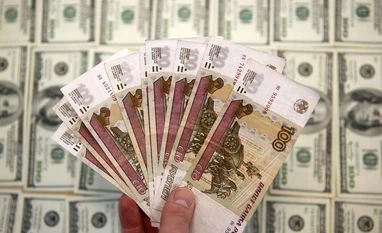The Russian government on Tuesday proposed extending capital controls that require exporters to convert foreign currency revenues into roubles until the end of the year, a move that should buttress the Russian currency.
The measures, ordered by President Vladimir Putin in an October decree, have been effective, the government said on the Telegram messaging app. They are currently set to expire in April.
The controls, which were opposed by the central bank, were brought in as the rouble tumbled past the 100 mark against the dollar. It was trading near 88 to the dollar on Tuesday.
"Taking into account the current results in accordance with the president's decree, the measures will be proposed for extension until the end of 2024," the government said.
The decree requires dozens of undisclosed exporting firms to deposit no less than 80% of foreign currency earned with Russian banks, and then sell at least 90% of those proceeds on the domestic market within two weeks.
"It can be noted today that, according to the available data, exporters have generally observed the presidential decree's requirements," said First Deputy Prime Minister Andrei Belousov.
More From This Section
"This has made it possible to cover the deficit of foreign currency needed by importers to maintain supplies of products to our country."
Assessing the potential impact of the government's proposal is difficult as details remain scant, said Rosbank analysts, but the news should boost the rouble.
"Given the positive shifts in exporters' activity on the FX market, we assess the impact of the measures on exchange rate expectations as significant," Rosbank said.
The central bank had long warned that currency controls were inefficient and would ultimately be circumvented, but publicly endorsed Putin's decree in October. Governor Elvira Nabiullina still voiced doubts.
Alexander Morozov, head of the bank's research and forecasting department, in late November said the central bank understood that the measures would last until April 30.
The central bank did not immediately respond to a request for comment on the government's proposal.
)